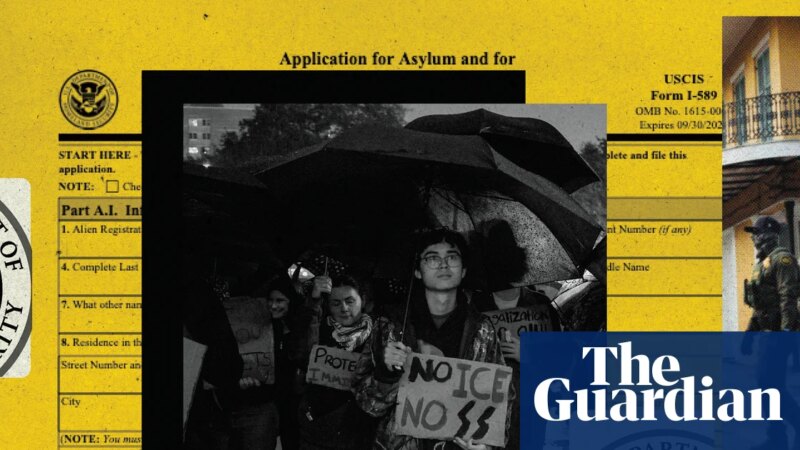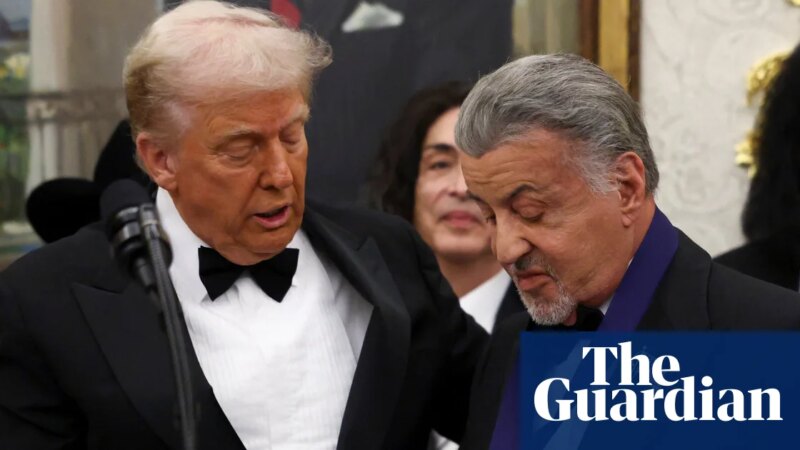Trump news at a glance: Another Republican challenges Trump over Epstein files | Trump administration
Republican congressman Thomas Massie has challenged Donald Trump over whether the US president is making a “last-ditch effort” to keep the full files on the late sex offender Jeffrey Epstein from becoming public by ordering a fresh investigation.
Massie and Democratic congressman Ro Khanna, the two US representatives leading the bipartisan push to make all the files held by the government public both raised fresh concerns about the latest actions by the White House.
Speaking on ABC’s This Week, Massie criticized Trump for ordering attorney general Pam Bondi on Friday to examine Democrats with ties to Epstein.
Massie’s comments come after Georgia Republican congresswoman Marjorie Taylor Greene demanded the release of all the Epstein documents, despite it causing a rift with Trump.
Here are today’s top stories:
Trump’s investigation into Epstein ties to political foes might be ‘smokescreen’, Republican says
“The president’s been saying this is a hoax,” Republican congressman Thomas Massie has told ABC’s This Week, referring to several claims Trump has made in reaction to repeated calls for full disclosure of the files. “He’s been saying that for months. Well, he’s just now decided to investigate a hoax, if it’s a hoax. And I have another concern about these investigations that he’s announced. If they have ongoing investigations in certain areas, those documents can’t be released.
“So, this might be a big smokescreen, these investigations, to open a bunch of them, as a last-ditch effort to prevent the release of the Epstein files,” he added.
Marjorie Taylor Greene on Sunday called Donald Trump’s remarks labeling her a traitor and a lunatic “hurtful” but said she hopes she and the US president can “make up”, despite stark differences over policy and the release of documents about Jeffrey Epstein.
Greene, a longtime ally and fierce defender of Trump and the “Make America great again” (Maga) base, pushed back against his name-calling in her first interview since Trump withdrew his support for her on Friday.
She told CNN’s State of the Union show: “His remarks, of course, have been hurtful … the most hurtful thing he said, which is absolutely untrue, is he called me a traitor and that is so extremely wrong.”
Trans air force members sue Trump administration over denied pension
A group of 17 transgender US air force members has sued the Trump administration for denying them early retirement pensions and benefits.
The complaint, submitted in federal court, describes the government’s move against them as “unlawful and invalid”.
The legal action follows the air force’s confirmation it would deny early retirement benefits to all transgender service members with 15 to 18 years of military experience, a decision that effectively pushes them out of the military with no retirement support at all.
US military attacks another alleged drug boat in eastern Pacific, killing three
The United States conducted another attack on an alleged drug trafficking boat in the eastern Pacific on Saturday, killing three people aboard, the Pentagon said on Sunday.
“Intelligence confirmed that the vessel was involved in illicit narcotics smuggling, transiting along a known narco-trafficking route, and carrying narcotics,” the US Southern Command announced in a post on social media.
The announcement said the boat was in international waters when it was struck by the Southern Spear joint taskforce. It did not give details on where the vessel was traveling from or what organization it was associated with.
What else happened today:
Catching up? Here’s what happened 15 November, 2025.





